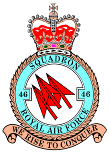|
were able to leave the wreck through the opening however possible and escape into the rubber dingy.† I was the last one standing on the left wing, already up to my stomach in water and my comrades, not without effort pulled me into the boat.† The stern of the airplane with its pitch and yaw rudders stood up steeply and sank almost vertically in the sea, leaving no trace. We tried to arrange ourselves in the ďnutshellĒ as well as the circumstances would allow.† Four people sat, two on each side, astride the sides of the boat, with one leg almost up to the knee in the water.† The fifth sat as helmsman on the stern, trading places in the coming hours lying before us with a rower to get a breather.† Meanwhile, the moon stood over the horizon as a gigantic disk and brilliantly poured forth its silvery light over the still virtually smooth as glass, infinitely wide sea.† Our odyssey had begun!! According to the last position-reckoning, the crash site lay about 35 km north of Heraklion, (at a depth of 200 to 300 meters).† So we steered in a southerly direction.† After some hours, it may have been around 3:00 in the night, the distant outlines of rocky land rose before us.† With fresh courage, we paddled on, until after approximately 12 hours (it must have about 9:30) we reached the Herklion offshore island of Dias under a sunny sky.† Just before that we had l had a traumatic experience.† We recognized a British airplane, brilliantly silver in the blue of the sky, and feared that we would be shot in the rubber dinghy.† However, the airplane didn't take any note of us.† With effort, we found a place to camp on the jagged slope, which crashed steeply into the sea.† We tried to catch our breath a little bit after we had spread our still moist shirts and shorts (the pilotís summer-uniform in the tropical south) to dry in the sun.† Meanwhile I climbed the rocky slope to a flat plateau, overgrown with all sorts of foliage.† From there I saw the harbor and airfield of Heraklion lying in almost tangible proximity before me.† The actual distance from the South coast of Dias to Heraklion is somewhat more than 3 kilometers. Shortly after returning to camp, the story took an unexpected turn for us all.† To our left in close proximity to the coast, a Greek fish-cutter with its chugging support-motor appeared, heading out to the open sea.† Shouting, signaling and wildly gesticulating, we succeeded in getting the fishermanís attention.† He stopped his boat and steered it as near to us as the cliffs would allow.† We tried to make the fisherman understand With all sorts of signs and imaginative expressions like "Germanski", airplane broken, etc., and by making sounds that were supposed to sound like machine gun fire and trying to show two airplanes flying one behind the other with our hands, that the five strange figures he had found perched on the cliffs of a god-forsaken isle was a shipwrecked German air crew.† The sight of us on the ledge of the beached rubber dingy finally made a comprehensible story out of all the confusing details. There was also a 15 or 16 year old boy on board with the fisherman, apparently his son.† The fisherman was a man of about 60 with a full beard and a badly creased, suntanned face.† The boy eyed us, intimidated, as though we had appeared from another world.† With great respect and spontaneous helpfulness, the five of us, for the captain actually nothing more than hostile occupying forces, were heaved on board, and the cutter headed toward the Heraklionís harbor with its strange load.† There we had already been routinely written off, and so the mystification and joy were all the greater as we entered the port like the erstwhile Odysseus and his men on a Greek barque.† That was it, our odyssey, even if it was pretty modest: without Polyphemus, Circe, Calypso and the sirens and without Scylla and Charybdis, thank God without Poseidon, the cruel God of the storms. Of the five He 111 fighters shot down by British night-hunters over the Aegean north of Create on October 1 and 2, 1944 my personnel alone survived thanks to the happy circumstances that have just been told.† I remember at this time the remaining four planes, that found their graves in the Aegean on those two nights. We thanked the Greek fisherman, our captain, by compensating him for not having brought in catch with a box with food, cans, cigarettes and all sorts of spirits.† I will never forget, how the old man, a bit helpless and sheepish, but obviously delighted and thankful accepted the gift, humble compared to his unselfish effort. This report is dedicated to the old Greek fisherman from the distant country of the Minoans, who has long since gone to join the "round dance of blissful spirits" in the Elysium, as a late memory of a noble gesture of humanity in the middle of a merciless, dark war.
Nienwohlde, April 15, 2006
Alfred Jobst
|





